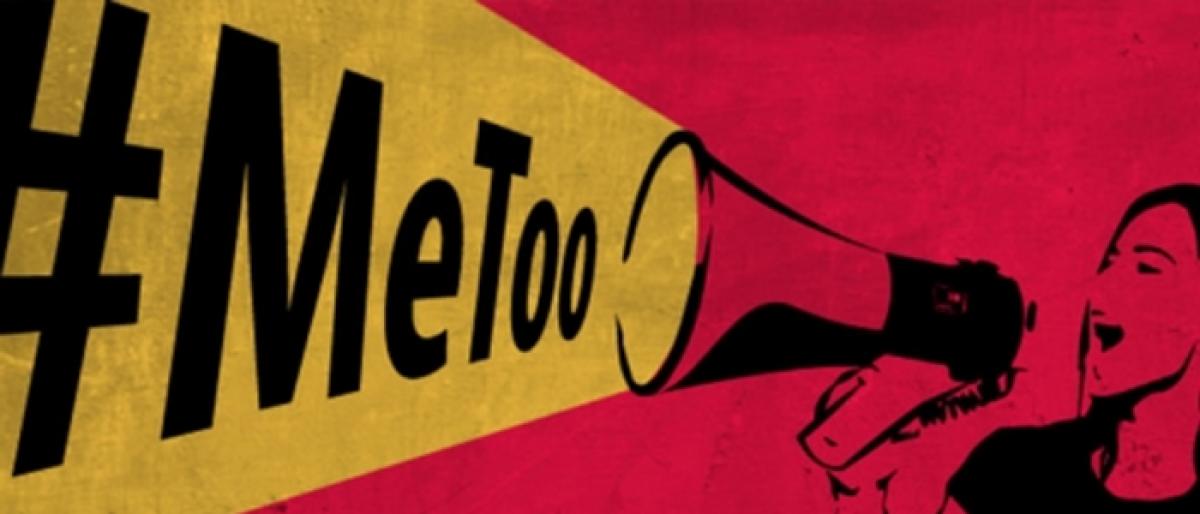Live
- Sudanese army recaptures capital of Sinnar State in central Sudan
- Kishkindha Kaandam Review: Some movies prove not to compromise in having a good cinematic experience and this is one of them
- Son-rise: Hemant Soren grows taller as tribal leader, makes father proud
- ISL 2024-25: 10-man NorthEast United FC hold on to take three points vs Punjab FC
- BGT 2024-25: Jaiswal’s application, commitment to form a partnership was so impressive, says Gilchrist
- BGT 2024-25: Personally, I am very happy with my performance, says Harshit Rana
- Pakistan's Lahore remains world's most polluted city despite light drizzle
- Asha Nautiyal retains Kedarnath for BJP, to be back as MLA after 12 years
- India leads world in science, innovation research: Minister
- Flash flood in Indonesia's South Tapanuli claims two lives
Just In

The Resident Doctors Association RDA at the AIIMS organised a workshop on Monday to spread awareness on the legal and psychological aspects of the MeToo movement and urged doctors to come forward with their stories of sexual harassment, if they had experienced any
New Delhi: The Resident Doctors' Association (RDA) at the AIIMS organised a workshop on Monday to spread awareness on the "legal and psychological aspects" of the #MeToo movement and urged doctors to come forward with their stories of sexual harassment, if they had experienced any.
RDA president Harjit Bhatti said, he had faced a backlash when he decided to organise the workshop as a section of resident doctors and his male friends said, asked him, why he was trying to promote a campaign which could be misused to spoil someone's career.
"They also gave me examples of complaints where the woman tried to take revenge by making false allegations of sexual harassment. But the issue is not about men or women, it is a gender neutral movement," he said.
"Anyone, who is facing sexual harassment at workplace or in society, irrespective of gender, must come forward and speak out so others get to know about the perpetrator. This attitude of oppressing the juniors must get reported," Bhatti said.
Pratap Sharan, a professor in the Department of Psychiatry and in-charge of the Student Wellness Centre at the AIIMS, said perpetrators in such cases sometimes are struggling with psychological issues and the prevention aspect is limited as they rarely come forward for treatment, unless they have committed a major crime.
He also said institutions should have facilities in campuses where empathic listening is possible. Also, there is a need to monitor the use of alcohol and drugs, which can lead increase in sexual harassment cases, he added.
Terming #MeToo as a social movement, he said there was a need to change mindsets of people towards patriarchy.
"There is a need to change perception. At institutional level, there should be policies in place so that one can easily report about such incidents. Education and awareness can act as a way of prevention," he said.
"More than reporting and conviction, there is a need for safe spaces so that one can have safe conversations. This ultimately will help them feel empowered to speak up and also file a complaint," he said.
Sharan said there was not much literature available on perpetrators involved in such cases. "When we can't understand the mindset of these people, nothing can be done to change it," he said.
He said even educational institutes have cases of sexual harassment and it is extremely important for to have a SWC (State Women’s Commission) on every campus. "Even now, one in every three women faces sexual harassment," Sharan said.
Karuna Nundy, a leading Supreme Court lawyer, said the constitution guarantees the freedom to talk, travel and a right to bodily integrity and dignity. "The structure of law and employment has failed to make these a reality.
Every woman who goes to work has been mostly battling harassment, discrimination and challenging patriarchy. These women, who are coming out on social media are saying we will revolt against the version of due process and public will support us unless your justice is credible," Nundy said.
The problem with the ICCs (internal complaints committees) was that some of them could be biased in favour of the senior management of the company, she said.
"Many are now realising that protecting the institution from liability does not require crushing the problem under the carpet and there are lots of limitations even in criminal laws,” she added.
Nundy said there was a provision in the CrPC (Code of Criminal Procedure) where it was reasonable to have such a delay in complaining.
Increasingly, around the world, the jurisprudence developing all the facts is that nature of sexual harassment or assault is such that it takes time for the victim to gather power, resources and get empowerment to complaint, she said.
The workshop focussed on psychological aspects of this movement and aimed at spreading awareness among the medical students so they can talk about anything and are also aware of the legal aspects.
Nundy said that this movement was not a "men against women" but it was a movement of "people against patriarchy”.
“The due process of filing a complaint is a big failure of our Constitution. Our criminal laws are a combination of Victorian-patriarchy, of progressive thinking and contemporary patriarchy," she added.

© 2024 Hyderabad Media House Limited/The Hans India. All rights reserved. Powered by hocalwire.com







